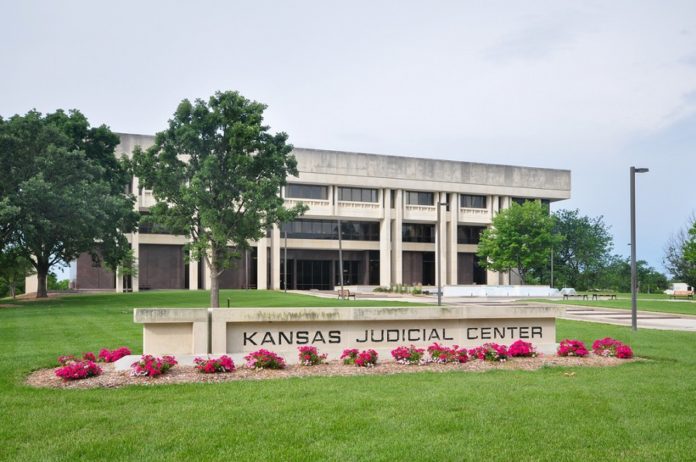Kansas Supreme Court Justice Lee Johnson announced Wednesday that he plans to retire after 12 years on the high court.
Johnson was appointed to the Supreme Court by former Gov. Kathleen Sebelius after serving on the Kansas Court of Appeals from 2001 to 2007. Former Gov. Bill Graves appointed Johnson to the Court of Appeals. He retires Sept. 8.
“It has been a profound honor and privilege to be a part of the highest court in Kansas, as well as the Court of Appeals, and to serve with so many knowledgeable and collegial jurists on both appellate courts,” Johnson said in a statement.

“For that indescribable experience, I particularly thank Governors Bill Graves and Kathleen Sebelius for taking a chance on a small-town lawyer. I will miss having the opportunity to interact with all of the fine people in the judicial branch.”
Before Johnson became a judge, he practiced law in Caldwell and served as city attorney for Caldwell, Argonia and Hunnewell. He is a graduate of the Washburn University School of Law, where he ranked second in a class of 211.
Johnson is 72. Under state law, Supreme Court Justices cannot stand for a retention election after they turn 75.
Chief Justice Lawton Nuss praised his departing colleague.
“Justice Johnson’s unique, thoughtful perspectives frequently caused his colleagues to re-examine their own legal positions,” Nuss said in a statement.
“While his fellow justices did not often change their minds, Justice Johnson’s views usually contributed to more-closely reasoned decisions by the court. It’s a real loss for Kansas.”
The opening will give Gov. Laura Kelly the chance to make her first appointment to the Kansas Supreme Court.
State Supreme Court justices are picked by a nominating commission made up of five lawyers and four nonlawyers.
The commission winnows the list to three names that are sent to the governor, who makes the appointment.
How long that nominating process will remain in place is in question.
There is expected to be an effort next year to change the system to a federal model, where the chief executive makes a nomination who is confirmed by the Senate.
While the federal model would give Kelly more power in making appointments, the governor has been in favor of the current judicial nominating process.
















